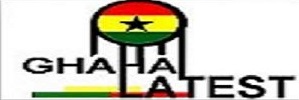 The insensitivity of the Mahama-led National Democratic Congress government towards the suffering of Ghanaians has been confirmed by its failure to activate the required action to ensure that the citizenry benefits fully from the falling world market prices of crude oil.
The insensitivity of the Mahama-led National Democratic Congress government towards the suffering of Ghanaians has been confirmed by its failure to activate the required action to ensure that the citizenry benefits fully from the falling world market prices of crude oil.
Meanwhile, the Daily Statesman can report that in its desperate bid to remain in power; the president intends to influence a massive reduction in the prices of fuel products during the last quarter of the year, as a means of seeking to attract votes. That decrease is expected to be in the region of 10-12%.
According to the Chamber of Petroleum Consumers Ghana, even though prices on the world markets over the past 4 windows (periods for review of petroleum prices) have gone down by over 17.164%, from previous levels of $50.22/barrel to the current index of $41.60/barrel, the Ghanaian consumer has not enjoyed a corresponding decrease in fuel prices.
A statement issued by the Chamber and signed by Duncan Amoah, the Executive Secretary, lamented that “the local pumps have till date adjusted by less than 5% cumulative across most OMCs,” adding that consumers should have seen at least 11-12% decrease in the prices of fuel.
“The cedi over the same period has lost marginally around 1.78% to close trading at 3.96/1$, it stands to reason, therefore, that given a standard variance of 5% cumulative, the Ghanaian petroleum consumer could have gotten at least 11-12% reductions at the pumps, but we have so far recorded below 5% net reductions over same period,” the statement explained.
The statement added that prices of petroleum products in the country had “so far not reflected prevailing figures both on the international markets and the cedi-dollar exchange, though same have contributed immensely in no small way in the past when pump prices have gone up, the phenomenon where periods for reductions seem to go unheeded is becoming increasingly worrying.”
The statement further noted with regret that contrary to expectations for fairness under deregulation which dictates prices to reflect current trends and market dynamics, “the Ghanaian downstream and pumps have remained quite insensitive to movement of indexes on the world market and the cedi’s performance over the past four pricing windows or two months.”
The Chamber indicated that even though it had high hopes in the deregulation programme in terms of appropriate application for the benefit of all and sundry within the Ghanaian downstream, “recent developments is gradually eroding that confidence.”
It, therefore, advised Ghanaians to patronise the few oil marketing companies that had demonstrated price sensitivity over the period, explaining that is the only way those charging higher currently would begin to appreciate the need to give value for money in petroleum prices.
“We[are] by this statement calling on the various bulk distribution companies and oil marketing companies to reduce fuel prices by at least 5% to ensure the right things are done in a deregulated market where the cardinal principle of FAIRNESS is protected as is the case the world over,” the Chamber appealed.




